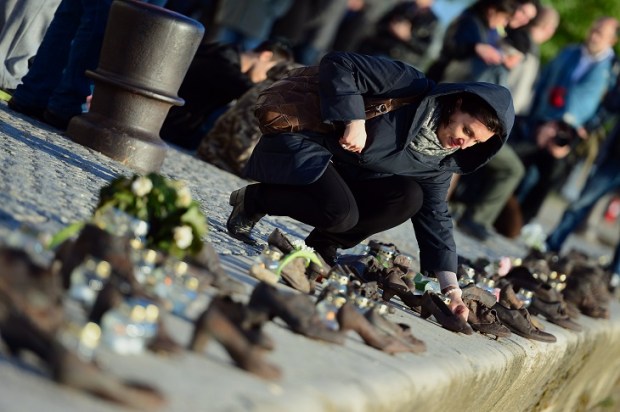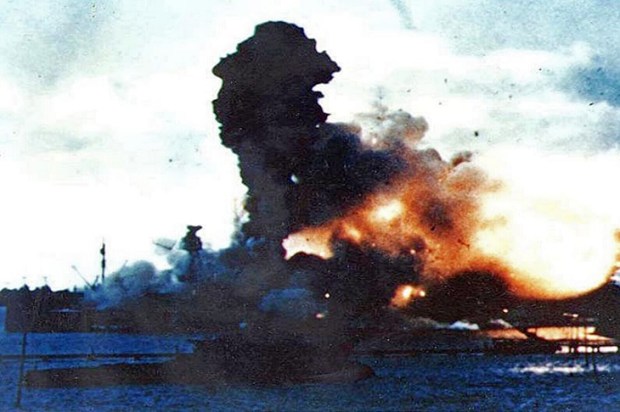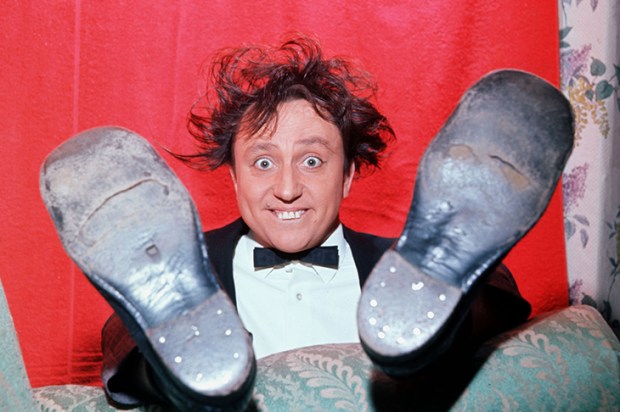Midway through Crisis of Conscience, the massive new compendium about US whistleblowers by the journalist Tom Mueller, I wanted to cry out for help: first in saving the country from the profound and corrosive corruption that is so well chronicled in this volume, and then finding a seasoned editor to cut the book down to readable size and scope. Mueller’s reporting and insight about the unusual breed of civic-minded citizen willing to risk his or her career by exposing government fraud and corporate malfeasance are extraordinarily detailed and vivid. But he does himself and his readers a disservice by overloading this work with lengthy disquisitions about behavioural theory and inflated quotations from the interested parties.
That said, Crisis of Conscience should be assigned reading for every elected official and civil servant, from the lowest municipality to the highest level in Congress, the executive branch and the federal bureaucracy — if only to show them what motivates whistleblowers. These mavericks of morality who, in Mueller’s words, assume the ‘duty of virtuous dissent’, share a distinguished lineage dating back to the American Revolution and a Marine captain named John Grannis. He complained to the Continental Congress about the ‘inhuman and barbarous’ treatment of British prisoners under the watch of Esek Hopkins, commander-in-chief of the Continental Navy. Hopkins was dismissed from his post and forced to retire, while Grannis and nine others were subsequently acquitted and reinstated. In 1778, Congress enshrined this principled insubordination into law, requiring ‘all persons in the service of the United States’ to denounce their fellow public employees if they caught them breaking the law or abusing their power.
Like so many other well-meaning gestures from that era, however, this founding legislation, and its successor laws, never really took hold in the American political consciousness. For every courageous individual who blew the whistle on official misconduct and waste of taxpayer money — and Mueller provides dozens of examples — there have been legions of well-dressed, well-connected grafters who, with their well-paid lawyers in tow, treat their accusers with contempt and intimidation. Of course, the Founding Fathers could not have anticipated the Military Industrial Complex or the National Security State, both spawned by the Cold War, which have raised the riches for unscrupulous politicians and the businessmen who support them to astronomic heights.
Mueller is at his best when he describes the culture of impunity in Washington, DC, and in certain of the 50 state capitals, which allows so much taxpayer money to be misused or stolen. ‘In 2018,’ he writes, ‘federal, state and local government distributed about $7 trillion in healthcare, defence, education and other industries.’ According to Mueller, rare is the politician (Iowa Senator Charles Grassley is cited as one notable example) who tries to ensure that congressional funds are spent economically and honestly. As public expenditures have grown, the author explains, so has the ‘share of public work being performed by private corporations, which creates sweeping conflicts of interest and undercuts the basic conception of public service’.
Mueller quotes the Supreme Court Justice Louis Brandeis’s sarcastic reference to ‘other people’s money’ (Brandeis was commenting on J.P. Morgan’s use of ‘unwitting depositors’ to make profits for his bank) to explain the concept that emboldens ‘public servants’ to squander the public’s money. A. Ernest Fitzgerald, perhaps America’s most famous contemporary whistle-blower, immortalised the Pentagon’s absurd overpayments to contractors by highlighting the cost of mundane items such as the $600 toilet seat.
But the fraud was, and remains, immense in weapons programmes, such as the infamous C-5A transport plane, which in 1968, according to Fitzgerald, was $2 billion (the equivalent today of nearly $15 billion) over budget thanks to huge, unquestioned markups by the manufacturers. Then, as now, the waste continues because the contracting companies are often staffed by former government officials who, after making modest salaries for much of their careers, can get higher paying jobs at the private sector companies they were previously supposed to regulate. There’s also an enormous incentive for these government workers to give what one activist calls ‘the Big Wink’ to their potential future employers when they catch them cheating.
Besides the Department of Defense, the best place to increase future earning potential is in the regulatory agencies that purport to police Wall Street. Mueller’s primary villain among many is Mary Jo White, who in 2013 was appointed by Barack Obama to head the Securities and Exchange Commission, in the wake of the 2008 financial meltdown. Rather than getting tough on banks and brokers, as Obama promised, White went easy on them, importing to the SEC like-minded colleagues from her old New York law firm, Debevoise and Plimpton, where many of the clients were Wall Street financial concerns. Now, thanks to this revolving door, she’s back at the firm as senior chair, presumably making more money than ever from Wall Street.
In this atmosphere of overwhelming opportunism — which the Trump administration is continuing with relish — why would anyone risk calling out malefactors? Mueller attributes many admirable personality traits to whistleblowers, but in the end, it seems, the majority are eccentrics and true believers who just don’t fit the go-along-to-get-along ethos of corporate or government life. In 2002, when Allen Jones, a Pennsylvania state inspector, uncovered what appeared to be bribery of the state’s chief pharmacist by the pharmaceutical giant Johnson & Johnson — this to push the prescribing of a harmful anti-psychotic drug called Risperdal — he was horrified. Like many whistleblowers, doing his job meant losing his job, as well as great loneliness and humiliation.
After ten years Jones mostly won his battle against Johnson & Johnson — the company was forced to pay about $3 billion to defend itself against Risperdal lawsuits — and received an $8 million settlement for his pain. But was it worth it? The corruption of the public/private nexus seems to be immutable, since the corporations view the costs of defending dishonesty as mere overheads (J&J sold $34 billion worth of Risperdal from 1993 to 2011) and the politicians thrive on corporate donations to their election campaigns. ‘This is the age of the whistleblower,’ Mueller claims. But instead it seems to be the golden age of the institutionalised crook.
Got something to add? Join the discussion and comment below.
Get 10 issues for just $10
Subscribe to The Spectator Australia today for the next 10 magazine issues, plus full online access, for just $10.
You might disagree with half of it, but you’ll enjoy reading all of it. Try your first month for free, then just $2 a week for the remainder of your first year.














Comments
Don't miss out
Join the conversation with other Spectator Australia readers. Subscribe to leave a comment.
SUBSCRIBEAlready a subscriber? Log in